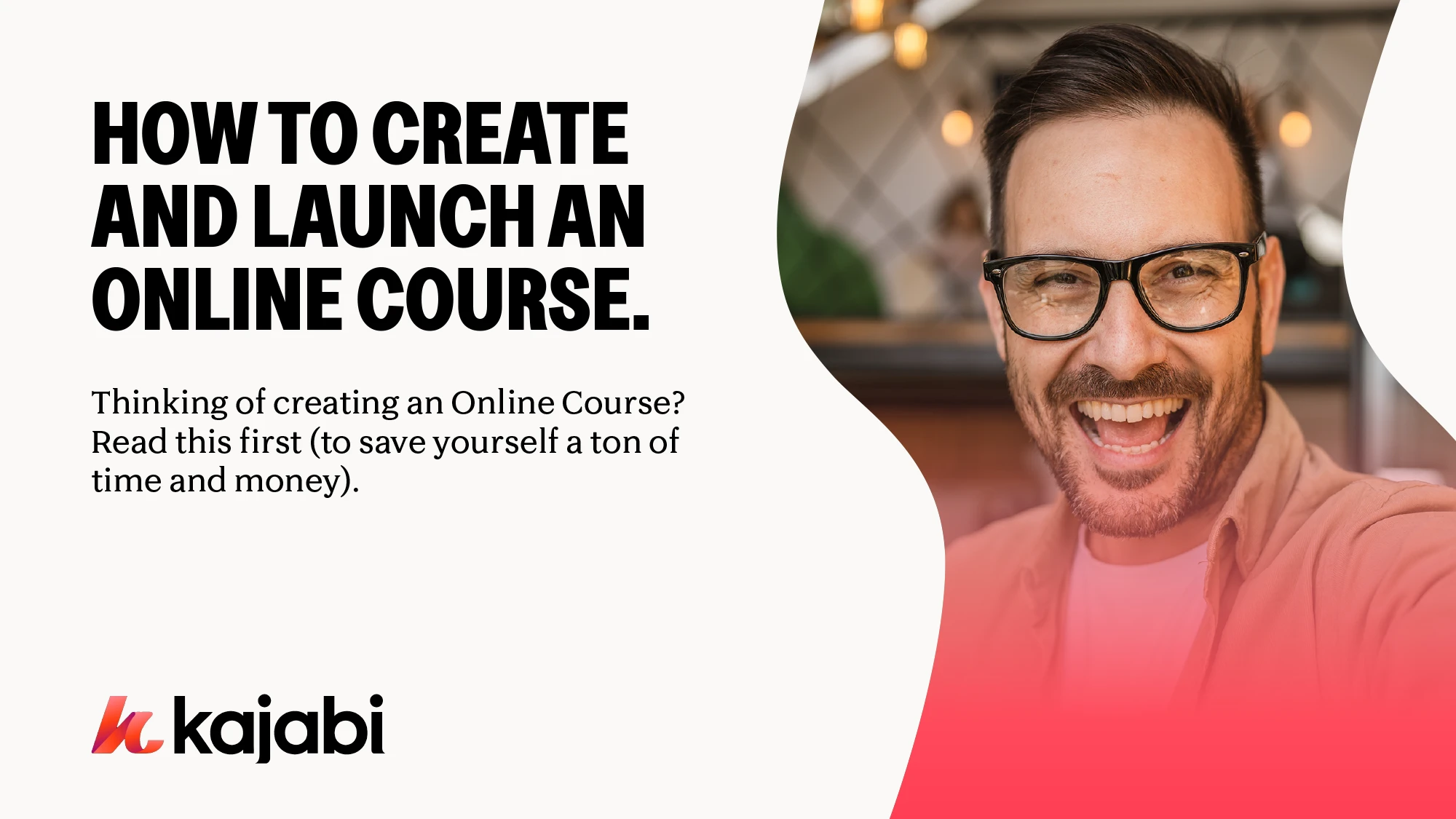
Thinking of Creating an Online Course? Read This First.
Creating an online course sounds like a great idea—passive income, helping people, scaling your expertise...
What’s not to love?
But here’s what most people don’t realise:
- A course is only valuable if people want to buy it.
- Most people build before they sell—and that’s a mistake.
- Budget matters. Your approach will depend on whether you have £0 or £5,000 to invest.
This guide will walk you through everything you need to consider before creating your course, plus the best options based on your budget.
By the end, you’ll know exactly what steps to take, what mistakes to avoid, and which approach suits you best.
1. What Problem Are You Solving?
Before you record a single video, you need to answer this:
- What problem does your course solve? (People pay for solutions, not information.)
- What transformation does it offer? (How will students be different after taking it?)
- Who is your target audience? (Beginners, advanced professionals, hobbyists?)
A great course idea isn’t based on what you want to teach—it’s based on what people want to buy.
Action Step:
🔹 Validate your idea. Talk to potential students. Run a poll. Ask in groups. If nobody is struggling with the problem you want to solve, rethink your course angle.
2. Do You Have an Audience?
Your course won’t sell itself.
You either need:
- An existing audience (email list, social media followers, community, podcast, etc.), or
- A strategy to build an audience before you launch.
If you already have an audience:
- You can pre-sell your course before creating it.
- Run a beta version—get students in, get feedback, and improve.
If you’re starting from scratch:
- Expect a longer ramp-up time (you’ll need to build credibility first).
- Consider offering free value first (e.g., a workshop, lead magnet, or webinar).
- Focus on email list building—because social media reach is unpredictable.
Action Step:
🔹 Write down where your audience is now and how you’ll grow it before launching.
3. What’s Your Budget?
Now let’s talk money.
Your budget will determine how fast and polished your course will be. Here are your two best options:
Option 1: DIY – The Low-Budget Route (£0-£500)
If you’re on a shoestring budget, your goal is to validate your course idea first before spending money.
- Use Gumroad, Thinkific Free Plan, or Teachable Free Plan – No upfront costs.
- Record with free tools – Loom, Zoom, or even your phone.
- Use free email marketing tools – MailerLite, ConvertKit (free plan).
- Sell before you build – Offer a live workshop or beta version before creating a full course.
- DIY everything – Expect to spend time learning, designing, and promoting yourself.
Best for: Coaches, consultants, or experts who are happy to figure things out on their own.
🚨 Warning:
- This takes time. You’ll be learning tech, marketing, and course creation at the same time.
- Your branding & conversions may suffer. No high-converting landing pages, funnels, or automation.
- Your course might not sell. Without audience validation, you could create something nobody buys.
Option 2: Fast-Track – Done-For-You or Guided Help (£1,500+ Investment)
If you don’t want to spend months figuring things out, getting expert help will save you time and increase your chances of success.
- For example we set up your course on Kajabi – No tech stress, just a professional, high-converting course setup.
- Custom landing pages & sales funnel – So people actually buy your course.
- Marketing & audience-building strategy – No more launching to crickets.
- Automation & integrations – Email sequences, payment setup, and everything running smoothly.
Best for: Coaches, consultants, and professionals who want a high-quality course without the tech headaches and guesswork.
🚀 Outcome: A polished course, a solid launch plan, and a system that works long-term.
4. What’s Next?
- If you’re going the DIY route – Start with Gumroad, Thinkific, or Teachable. Validate your idea, build an audience, and pre-sell.
- If you can invest £1,500 or more and want expert help – Book a call with me to discuss your course idea and how we can help.
Remember:
- There’s no wrong choice—it depends on your budget, skills, and timeline.
- If you’re serious about making money with your course, investing in expert help can save months of trial and error.
Good luck with your course!



